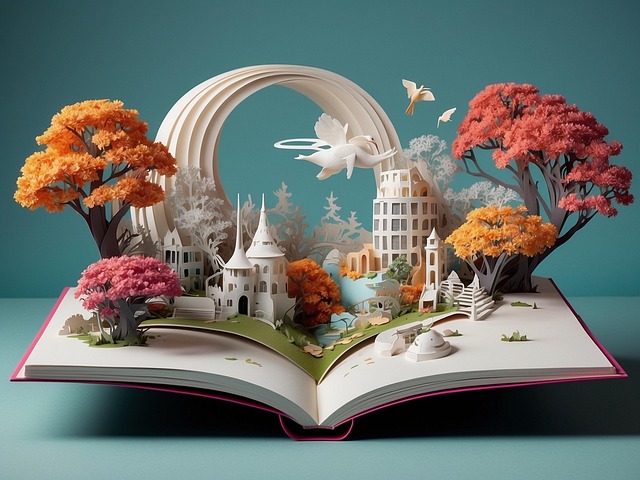AI chatbots are transforming e-commerce by providing 24/7 customer support through human-like conversations powered by natural language processing (NLP) and machine learning. They handle product recommendations, answer queries, facilitate checkouts, and learn from each interaction to offer personalized experiences. Businesses can leverage chatbot data for marketing insights and inventory optimization. Integrating AI chatbots into e-commerce platforms requires strategic training, seamless integration, and regular personalization updates to drive engagement, sales, and loyalty.
In today’s digital era, AI chatbots are transforming the ecommerce landscape. These intelligent assistants offer a multitude of benefits, from enhancing customer service to driving sales. Understanding how AI chatbots can personalize shopping experiences and provide instant support is crucial for online retailers looking to stay competitive. This article explores the potential of AI chatbots in ecommerce, highlighting key features, best practices, and the significant advantages they bring to your online store. Discover how implementing an ochatbot can revolutionize your business.
- Understanding AI Chatbots and Their Potential in Ecommerce
- Benefits of Implementing an AI Chatbot for Your Online Store
- Key Features and Technologies Driving Ecommerce AI Chatbots
- Best Practices for Developing and Deploying Effective AI Chatbots
Understanding AI Chatbots and Their Potential in Ecommerce

AI Chatbots are transforming the way businesses interact with their customers, particularly in the fast-paced world of e-commerce. These intelligent virtual assistants leverage advanced natural language processing (NLP) and machine learning algorithms to understand and respond to user queries in human-like conversations. An AI chatbot can assist shoppers by providing product recommendations, answering common questions, offering real-time support, and even facilitating the checkout process, thereby enhancing customer satisfaction and streamlining sales.
The potential of AI chatbots in e-commerce is vast. They can handle a high volume of customer interactions simultaneously, reducing response times and workload on human customer service representatives. With their ability to learn from each interaction, chatbots can offer personalized experiences, improving customer engagement and loyalty. Moreover, by analyzing conversation data, businesses can gain valuable insights into customer preferences and shopping behaviors, enabling them to refine marketing strategies and product offerings.
Benefits of Implementing an AI Chatbot for Your Online Store

Implementing an AI chatbot for your online store can significantly enhance customer experience and drive sales. These intelligent assistants offer 24/7 availability, instantly addressing customer inquiries and providing instant support. Whether it’s answering product questions, offering size or color recommendations, or guiding users through checkout, an AI chatbot ensures customers receive personalized assistance throughout their entire shopping journey.
Moreover, AI chatbots can collect valuable customer data, allowing retailers to gain deeper insights into purchasing habits and preferences. This data can be leveraged for targeted marketing campaigns, tailored product suggestions, and improved inventory management. By streamlining communication and personalization, AI chatbots create a seamless and engaging experience that fosters customer loyalty and boosts conversions.
Key Features and Technologies Driving Ecommerce AI Chatbots

The key features and technologies driving e-commerce AI chatbots include advanced natural language processing (NLP) capabilities, enabling them to understand and respond to customer queries in a human-like manner. These chatbots leverage machine learning algorithms to learn from customer interactions, continually improving their accuracy and relevance over time.
Core technologies behind successful AI chatbots involve context management, allowing them to maintain continuity throughout conversations. Integration with e-commerce platforms facilitates seamless access to product information, inventory updates, and order status, enhancing the overall customer experience. Additionally, AI chatbots can be personalized with brand-specific knowledge graphs, enabling them to provide tailored recommendations and support based on individual user preferences and purchase history.
Best Practices for Developing and Deploying Effective AI Chatbots

When developing and deploying an AI chatbot for e-commerce, best practices involve ensuring natural language processing capabilities that understand customer queries accurately. This includes training the chatbot on a diverse dataset specific to your industry and use case, allowing it to grasp technical jargon and common user expressions. Regularly updating and refining this dataset is crucial as the conversational landscape evolves.
Moreover, integrating AI chatbots seamlessly into the existing e-commerce platform is key. This means providing a smooth transition from human customer service to chatbot assistance, with clear handoffs when needed. Personalization and context awareness are also vital; tailoring responses based on user history enhances engagement while maintaining an intuitive flow for efficient problem resolution.
AI chatbots are transforming the ecommerce landscape, offering unparalleled customer engagement and support. By leveraging key features like natural language processing (NLP) and machine learning, these bots enhance user experiences, provide 24/7 assistance, and drive sales through personalized interactions. Implementing an AI chatbot can be a game-changer for online stores, ensuring competitive edge and improved customer satisfaction. Remember that best practices, such as clear communication, continuous training, and data privacy considerations, are essential for developing effective ecommerce AI chatbots.
